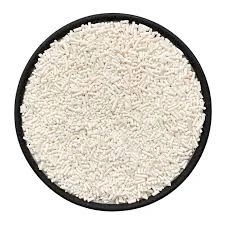
Malic Acid Food Additive - Uses, Benefits, and Safety Information
Understanding Malic Acid as a Food Additive
Malic acid, a naturally occurring organic compound, plays a significant role in the food industry as a widely used additive. It is classified as a dicarboxylic acid and is found in various fruits, particularly apples, which is where it derives its name. This compound not only contributes to the tart flavor of many fruits but also serves several functional purposes when used in food products.
Understanding Malic Acid as a Food Additive
In addition to flavor enhancement, malic acid serves as an acidity regulator. This characteristic is particularly valuable in preserving the quality and safety of food products. By maintaining a desirable pH level, malic acid helps to inhibit the growth of harmful microorganisms. This preservative effect is critical in products like pickles, sauces, and certain dairy items, where an acidic environment is essential for extending shelf life.
malic acid food additive

Another significant aspect of malic acid is its role as a stabilizer in various food formulations. It can help to improve the texture and consistency of products, ensuring that they meet consumer expectations. This property is especially beneficial in processes like fermentation, where malic acid can influence the behavior of bacteria and yeast, enhancing the overall quality of fermented foods and beverages.
Moreover, malic acid is often used in fruit-based products and soft drinks, where it acts as a flavor enhancer and preservative. Its low toxicity and generally recognized as safe (GRAS) status by food safety authorities make it a preferred choice for many manufacturers. Given its natural occurrence in fruits, consumers often perceive it as a healthier alternative compared to synthetic additives.
The application of malic acid also extends to the health and wellness sector. Some dietary supplements incorporate this compound due to its potential health benefits. It is believed that malic acid may aid in energy production, improve exercise performance, and even support the body’s detoxification processes. However, while these claims are of interest, it is essential for consumers to consult with healthcare professionals before relying on malic acid for health benefits.
In conclusion, malic acid is a versatile and valuable food additive that enhances flavor, regulates acidity, and stabilizes food products, making it an essential component in the food manufacturing process. Its natural origins in fruits align with consumer preferences for cleaner labels and healthier options. As the food industry continues to evolve, malic acid's role in creating appealing and safe food products will likely remain significant. Whether enjoyed in a refreshing drink or as part of a favorite candy, malic acid helps to create the enjoyable flavors that we often take for granted in our daily diets.
-
The Safety Challenges of Ammonium Nitrate FertilizerNewsJun.26,2025
-
The Critical Role of Mining ChemicalsNewsJun.26,2025
-
Shelf Life of Glacial Acetic Acid Food GradeNewsJun.26,2025
-
Enhancing PVC Longevity with 1,2,3-Benzotriazole InnovationsNewsJun.26,2025
-
China’s Dominance in Food Additive ProductionNewsJun.26,2025
-
Can Aluminum Hydroxide Replace More Toxic Alternatives?NewsJun.26,2025
-
PE and PP Plastics with Benzotriazole AdditivesNewsJun.12,2025
Hebei Tenger Chemical Technology Co., Ltd. focuses on the chemical industry and is committed to the export service of chemical raw materials.
-

view more DiethanolisopropanolamineIn the ever-growing field of chemical solutions, diethanolisopropanolamine (DEIPA) stands out as a versatile and important compound. Due to its unique chemical structure and properties, DEIPA is of interest to various industries including construction, personal care, and agriculture. -

view more TriisopropanolamineTriisopropanolamine (TIPA) alkanol amine substance, is a kind of alcohol amine compound with amino and alcohol hydroxyl, and because of its molecules contains both amino and hydroxyl. -

view more Tetramethyl Thiuram DisulfideTetramethyl thiuram disulfide, also known as TMTD, is a white to light-yellow powder with a distinct sulfur-like odor. It is soluble in organic solvents such as benzene, acetone, and ethyl acetate, making it highly versatile for use in different formulations. TMTD is known for its excellent vulcanization acceleration properties, which makes it a key ingredient in the production of rubber products. Additionally, it acts as an effective fungicide and bactericide, making it valuable in agricultural applications. Its high purity and stability ensure consistent performance, making it a preferred choice for manufacturers across various industries.











